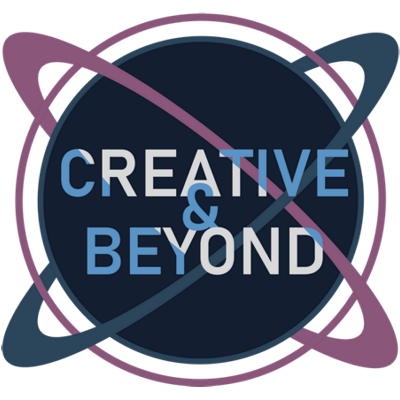How to Build a Life of Creativity
Image credit: Unsplash
Well wouldn’t you know it, we’ve got another guest post! And I’m gonna tell you right now, this is a topic I’m especially fond of.
How about we just get right to post, which is brought to you by Rosanna Jeffers.
How to Build a Life of Creativity
Science tells us that highly creative people have unique brain connectivity. In a study conducted by the University of California, researchers tested highly creative people — those who scored in the top 2% of the Creative Achievement Questionnaire — and found that when they were engaged in tasks, their brains made more random connections versus people with comparable IQs. This random connectivity, which makes brain function less efficient much of the time, allows the brain to make novel connections and lets your thoughts wander from the beaten path.
While it may appear that our brain functions have something to do with our creativity, the lack of this connectivity doesn’t mean we can’t live a fulfilling, productive, and highly-inspired life. All creativity begins with curiosity, and tapping into this universal trait makes us more creative than we realize. As long as we’re willing and open to think outside a box, we can build a creative life. Here’s how:
Establish your own creative system
As has been previously mentioned on this site, a creative is someone who is committed to the regular practice of creativity. They’re not focused on getting results, but instead put their efforts toward bringing order from chaos and revealing meaning in life. Creatives undergo their journey as its own end, not just a means to something else. That being said, committed creatives need to provide themselves with some structure to work on their craft. Dedicating time and space to your art, even if it’s just a small desk in the corner of your apartment and thirty minutes of your day, will help make sure you show up and actually create.
Aside from getting into a daily routine of creativity, you may also wish to sign up for a specific, recurring date where you participate in an activity run by someone else. Writing during National Novel Writing Month, joining a weekly open mic, or volunteering to do art are some activities that push you towards creating something that gets your juices flowing.
Pursue a creative career
Creativity requires consistency and practice, so pursuing a creative career ensures you get to exercise and hone your skills every day. Of course, you can still live a creative life with a normal day job, but creative careers are different. Working in a liberal arts career — such as advertising, marketing, and writing — can open up avenues for creativity, and are quite lucrative as a bonus. You can earn around $60,000 to $131,000 in certain jobs annually, with opportunities to earn more as demand across industries, organizations, and subjects increase.
Creative jobs lead to a variety of career outcomes, so you’ll discover new things about your field that can inspire your work. Choosing a creative career also lets you meet like-minded people who have a wealth of experience to share with you. By joining their community, you can find more opportunities, potential collaborations, and sources of inspiration to fuel your craft.
Expose yourself to new things constantly
Creative people never stop learning. Whatever their interests may be, they go outside their comfort zones and push themselves to learn something new. Teaching children empathy, for instance, was found to have improved their creativity significantly. When the students considered the thoughts, feelings, and perspectives of others, they were able to expand their horizons. Exposing yourself to fresh ideas, experiences, and alternative points of view can keep your mind active.
So what are some ways to do this? Listen to new genres of music, read books you think you’ll disagree with, and watch videos on random topics. If you have extra time, why not visit a free museum exhibit or watch a play? People-watching in coffee shops or on public transportation is another way to receive unexpected, creative stimuli as you observe people from all walks of life. The point is to stop being boxed into what you already know and instead embrace a life of new discoveries. This is the essence of true creativity.
Article written by Rosanna Jeffers
Exclusively for


